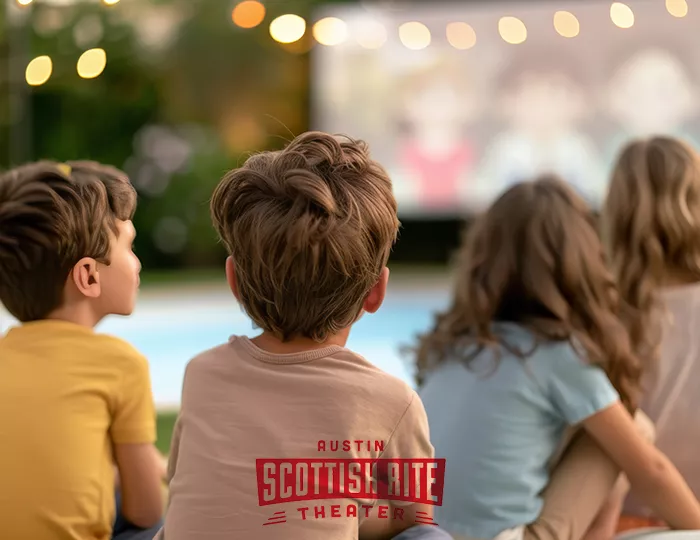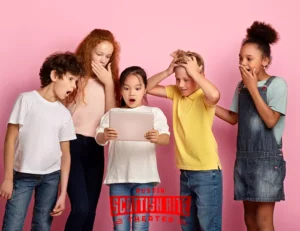When children go to the theater, most parents see it as a fun outing. A chance to sit together, watch a play, and maybe grab a snack afterward. But what many parents don’t realize is that every play has lessons built in. Beyond the bright costumes, songs, and laughter, kids are quietly learning about how people interact. They are picking up social skills that will help them at school, with friends, and in daily life.
At Austin Scottish Rite Theater, every performance is designed with young audiences in mind. That means the stories, characters, and situations connect with kids in ways they understand. Watching a play is not just entertainment. It is practice for real life.
Stories Show Kids How to Connect
Children learn best by example. In theater, those examples come alive right in front of them. They see how characters talk to each other, how they solve problems, and how they handle conflict.
When a character apologizes after making a mistake, kids notice. When a shy character makes a new friend, kids pay attention. When two characters argue and then work things out, children understand what cooperation looks like.
These moments stick because they are tied to the story. Kids are not being lectured. They are seeing, feeling, and experiencing social skills in action.
Empathy Starts in the Audience
Empathy is one of the most important social skills a child can develop. It means being able to understand and care about how someone else feels. Theater is a perfect place to learn this.
When kids watch a character struggle, they feel it too. If the character is lonely, scared, or excited, children in the audience share that experience. This helps them practice seeing the world from someone else’s point of view.
At Austin Scottish Rite Theater, plays are carefully chosen to include diverse characters and relatable stories. This gives children a wide range of emotions and situations to connect with. Over time, this practice of empathy carries over into real-life friendships and relationships.
Theater Encourages Listening
Social skills are not just about talking. Listening is just as important. In a live performance, kids have to pay attention to understand the story. They listen to the dialogue, the songs, and the way characters respond to one another.
This active listening helps children learn how to follow conversations in real life. It also teaches them patience. They learn that sometimes they need to wait for the next line, the next scene, or the next clue before reacting.
Parents often notice that kids who attend theater regularly become better listeners at home and in school. That’s because they are practicing it in a setting that is fun and exciting.
Teamwork on Stage Teaches Teamwork in Life
Every play is built on teamwork. Characters work together to reach a goal. Sometimes they fail and have to try again. Sometimes they succeed only because they combined their strengths.
Children watching these stories see that teamwork matters. They see that no one can do everything alone. This lesson is powerful, especially for kids who are learning how to cooperate in group activities like sports, school projects, or family chores.
At Austin Scottish Rite Theater, the performances are full of examples of cooperation and collaboration. Kids not only see the teamwork in the story but also feel the teamwork in the production itself – actors, sets, lights, and music all coming together.
Conversations After the Play Build Confidence
One of the best ways to extend the lessons of theater is to talk about the play afterward. Parents can ask questions like:
- Who was your favorite character?
- What did you like about how they acted?
- How did the story make you feel?
These conversations help kids practice expressing their own thoughts and feelings. Over time, this builds confidence. They learn that their opinions matter and that sharing them is part of connecting with others.
Why Austin Scottish Rite Theater Makes a Difference
Austin Scottish Rite Theater has been part of the community for decades. It is a place where children are not just entertained but inspired. Every play is chosen to bring families together and to help kids grow in meaningful ways.
From the moment the lights go down to the final bow, children are learning how to connect with others. They are building empathy, patience, listening skills, and confidence – all while having fun.
This is why theater is so valuable. It is not just a one-time outing. It is an experience that helps shape children into caring, confident, and socially aware people.
Conclusion
Social skills are not taught in a single lesson. They are built over time, through experiences that feel real and engaging. Theater gives children those experiences.
So the next time you bring your family to Austin Scottish Rite Theater, remember: you are not just giving your child a fun day out. You are giving them tools they will use for the rest of their lives.
The laughter, the songs, the applause – those are just the beginning. The real gift is the way theater helps kids learn how to connect, share, and grow with the people around them.




